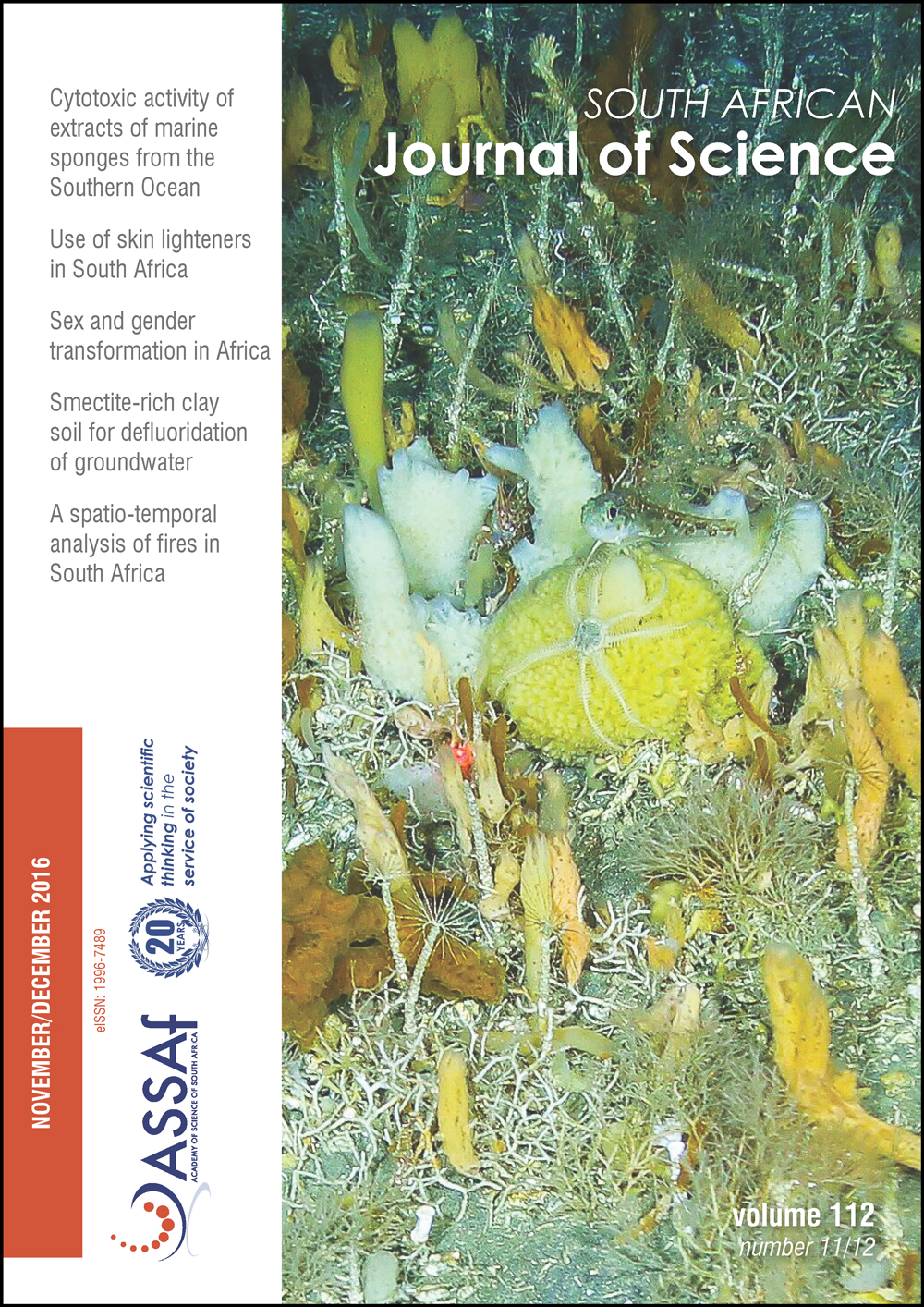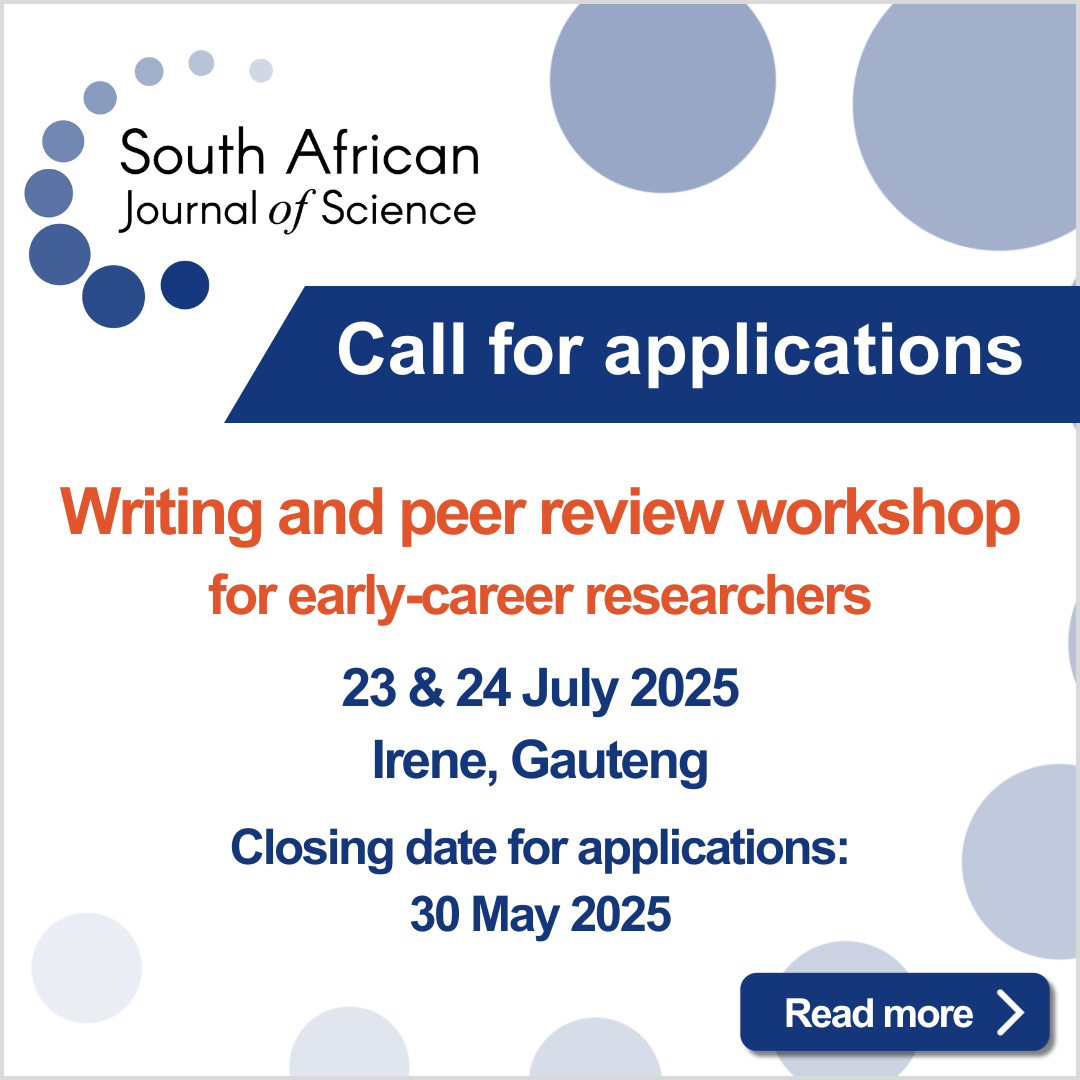Cytotoxic activity of marine sponge extracts from the sub-Antarctic Islands and the Southern Ocean
DOI:
https://doi.org/10.17159/sajs.2016/20160202Keywords:
multidisciplinary, Prince Edward Islands, marine natural products, cancer cell lines, drug discoveryAbstract
Over the past 50 years, marine invertebrates, especially sponges, have proven to be a valuable source of new and/or bioactive natural products that have the potential to be further developed as lead compounds for pharmaceutical applications. Although marine benthic invertebrate communities occurring off the coast of South Africa have been explored for their biomedicinal potential, the natural product investigation of marine sponges from the sub-Antarctic Islands in the Southern Ocean for the presence of bioactive secondary metabolites has been relatively unexplored thus far. We report here the results for the biological screening of both aqueous and organic extracts prepared from nine specimens of eight species of marine sponges, collected from around Marion Island and the Prince Edward Islands in the Southern Ocean, for their cytotoxic activity against three cancer cell lines. The results obtained through this multidisciplinary collaborative research effort by exclusively South African institutions has provided an exciting opportunity to discover cytotoxic compounds from sub-Antarctic sponges, whilst contributing to our understanding of the biodiversity and geographic distributions of these cold-water invertebrates. Therefore, we acknowledge here the various contributions of the diverse scientific disciplines that played a pivotal role in providing the necessary platform for the future natural products chemistry investigation of these marine sponges from the sub- Antarctic Islands and the Southern Ocean.
Significance:- This study will contribute to understanding the biodiversity and geographic distributions of sponges in the Southern Ocean.
- This multidisciplinary project has enabled the investigation of marine sponges for the presence of cytotoxic compounds.
- Further investigation will lead to the isolation and identification of cytotoxic compounds present in the active sponge extracts.
Published
Issue
Section
License

All articles are published under a Creative Commons Attribution 4.0 International Licence
Copyright is retained by the authors. Readers are welcome to reproduce, share and adapt the content without permission provided the source is attributed.
Disclaimer: The publisher and editors accept no responsibility for statements made by the authors
How to Cite
- Abstract 753
- PDF 603
- EPUB 202
- XML 264













.png)